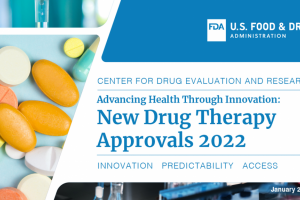Sexually Transmitted Disease Vaccines
Sexually Transmitted Disease Vaccines 2024
The World Health Organization (WHO) says effective vaccines are available for certain sexually transmitted infections (STIs). According to the WHO, about 30 different bacteria, viruses, and parasites are known to be transmitted through sexual contact. The U.S. Food and Drug Administration (FDA) approved vaccines that can prevent certain sexually transmitted diseases (STDs) caused by infections from bacteria, viruses, or parasites. On January 30, 2024, the U.S. Centers for Disease Control and Prevention (CDC) published the STI Surveillance annual report. The U.S. National Institutes of Health (NIH) and the National Institute of Allergy and Infectious Diseases (NIAID) work with genomic sequencing to accelerate STD vaccine research, empowering the development of preventive and therapeutic vaccines. The NIH's Sexually Transmitted Infections National Strategic Plan 2021–2025 provides the framework for analysis and vaccine development.
In an Early Release, Volume 30, Number 4, April 2024, the CDC Emerging Infectious Diseases concluded vaccination against hepatitis A, meningococcal disease, and mpox should be encouraged among at-risk groups.
Chlamydia vaccine candidates continue in pre-clinical research. Chlamydia is the most common bacterial STI.
Ebola vaccines are approved for use in Africa. In July 2015, Ebola outbreak cases were attributed to sexual transmission.
Epstein-Barr Virus vaccine and monoclonal antibody candidates are conducting early-stage clinical studies.
Gonorrhea vaccine candidates continue in clinical studies. In the U.K., meningococcal vaccination is advised for certain people.
Hepatitis vaccines are safe, effective, and authorized in 2024.
Herpes Vaccine candidates continued in clinical studies in 2024, including one mRNA vaccine.
HIV vaccine candidates are conducting clinical studies in 2024 but are not U.S. FDA-approved.
HPV Vaccines are approved and offered in most countries.
Mpox vaccines are authorized and available in countries with outbreaks.
Syphilis Vaccine candidates will continue in clinical studies in 2024.
Sexually Transmitted Infections
On March 7, 2024, the European Centre for Disease Prevention and Control published its latest Annual Epidemiological Reports on the state of STIs in the European Union/European Economic Area (EU/EEA), which showed gonorrhea cases rising by 48%, syphilis by 34%, and chlamydia by 16%. The U.K. Health Security Agency (UKHSA) published in June 2023 data indicating record levels of chlamydia (24.3%), gonorrhea (50.3%), and syphilis (up 15.2%) diagnoses in 2022. In the U.S., from 2014 to 2018, the rates of reported cases of primary and secondary syphilis, congenital syphilis, gonorrhea, and chlamydia rose 71%, 185%, 63%, and 19%, respectively.
Sexually Transmitted Disease Prophylaxis Doxycycline
On December 16, 2023, the U.S. Centers for Disease Control and Prevention (CDC) published a Research Letter, Volume 30, Number 1—January 2024, confirming that providers who more commonly treat STIs are more likely to prescribe prophylactic doxycycline and believe that benefits outweigh the potential for increased antimicrobial resistance. The U.S. NIH announced in April 2023 that taking the oral antibiotic doxycycline within three days after unprotected sex reduced the risk of sexually transmitted infections among those at increased risk. In addition, the DoxyPEP phase 3 clinical study examined the incidence of gonorrhea, chlamydia, and syphilis and found that doxycycline reduced the risk of STIs caused by certain types of bacteria by 66%. The peer-reviewed NEJM journal published the findings from Original Research on April 6, 2023, led by the University of California, San Francisco, in a phase 4 clinical trial. On April 28, 2923, the California Department of Public Health released guidance for healthcare providers recommending doxyPEP to men who have sex with men or transgender women who have had at least one bacterial STI in the past 12 months. On October 2, 2023, the CDC and NIH announced Guidelines for the Use of Doxycycline Post-Exposure Prophylaxis for Bacterial STI Prevention; Request for Comment and Informational Presentation. The CDC lists randomized controlled trials using doxycycline as PEP to reduce bacterial STIs.
Sexually Transmitted Disease Tests
The U.S. FDA announced on November 15, 2023, that it granted marketing authorization to LetsGetChecked for the Simple 2 Test, a diagnostic test for chlamydia and gonorrhea for adults. LetsGetChecked for the Simple 2 Tes is the first FDA-authorized test with at-home sample collection for any STD other than HIV. The U.S. CDC publishes STD testing information as of April 2023 for Gonorrhea, Syphilis, and Chlamydia. On February 14, 2023, the U.S. Preventive Services Task Force Issued Final Recommendation Statement on Serologic Screening for Genital Herpes Infection. Based on the evidence, the Task Force does not recommend serologic screening for genital Herpes in people without signs or symptoms.
The global STD diagnostics market was valued at $9.25 billion in 2022, and it is predicted to reach $18.59 billion by 2032, with a CAGR of 7.23% from 2023 to 2032, reported Grand View Research in August 2023.





